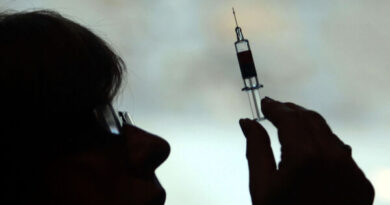If the CDC Goes Full Antivax, What Will Pediatricians Do?

Mother Jones illustration; Shane Bevel/The (Sheveport) Times/AP
Robert F. Kennedy Jr. has devoted the last decade to spreading misinformation about the safety of routine childhood vaccinations. Now, he’s poised to lead the Department of Health and Human Services, the agency that oversees the Centers for Disease Control, which sets the national immunization guidelines. Under Kennedy, physicians may face the challenge of having to tell patients that government guidance isn’t based on sound science. Dr. Mobeen Rathore, Chief of the Division of Pediatric Infectious Diseases and Immunology, talked about how pediatricians may navigate those tricky conversations.
On what he’s seeing: We have worked very hard every year during flu season to increase the flu immunizations. And they have plummeted. The mis- and disinformation about the Covid vaccines sort of seeped into other vaccines, and now people are questioning all vaccines.
On the diseases that could come back if vaccination rates drop: Measles is always a huge concern because it’s a very contagious disease. Polio is a concern because it is only one flight away. A kid flies, or a parent flies, from a country with polio and gives it to somebody—that would be devastating. We are seeing more cases of pertussis [whooping cough]. People forget that these things were there. In my office, I see influenza, type B meningitis—when I was in training, we would have two or three kids in the hospital all the time with devastating results.
On what pediatricians will do if the government flouts the science on childhood immunization recommendations: Pediatricians count on and depend a lot on the American Academy of Pediatrics. I’m not in any way minimizing the great work the CDC does. But I think most of us realize that it has to be approved by the government, by people who may not be scientists, who may not understand science.
On how pediatricians’ conversations with parents could change: Most pediatricians are going to look at the positive and say, ‘Listen, the Academy [of Pediatrics] is non-biased. They look at all the data, and this is the science behind it.’ Most parents will ultimately do what’s best for their children. It’s not that they have anything against their children—it’s that because of the disinformation they are misunderstanding the situation. It’s our responsibility and duty to work with them and try to encourage them, engage them, help them understand the importance. We have to spend more time.
On the people who will suffer most if vaccine-preventable diseases return: The most vulnerable are the youngest children and the elderly. Certainly those who are at a disadvantage for healthcare are going to be at higher risk. Healthcare disparity puts not only people who are facing those disparities in danger, but it also risks the general population. Germs are the most non-racist living beings. All they need is to survive and grow and find somebody where they can do that,, and uUnfortunately, that’s us.


